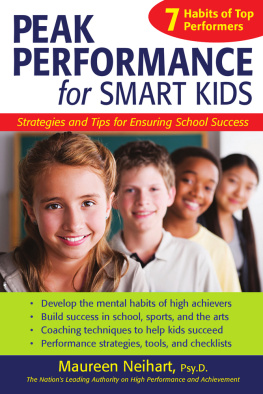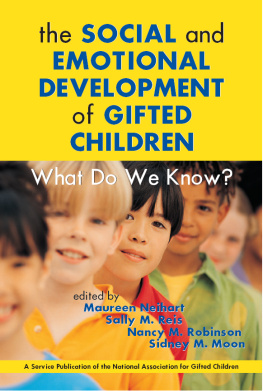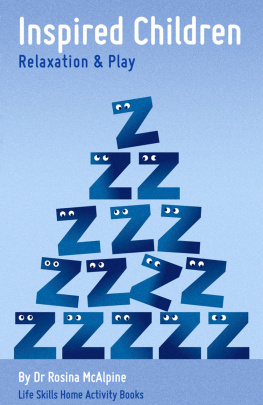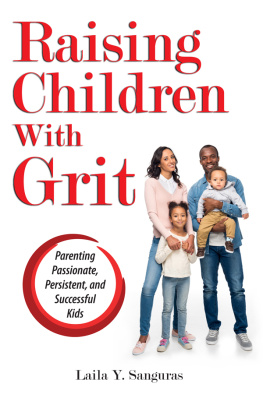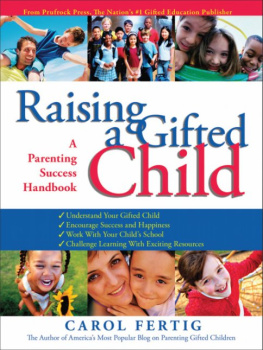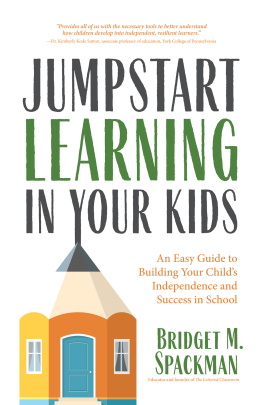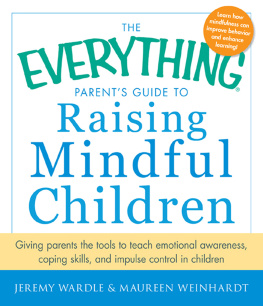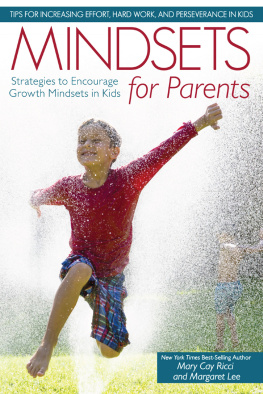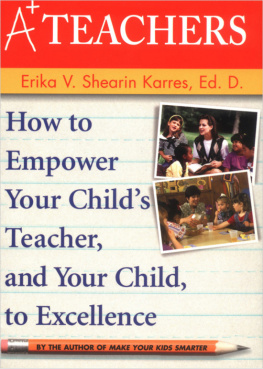
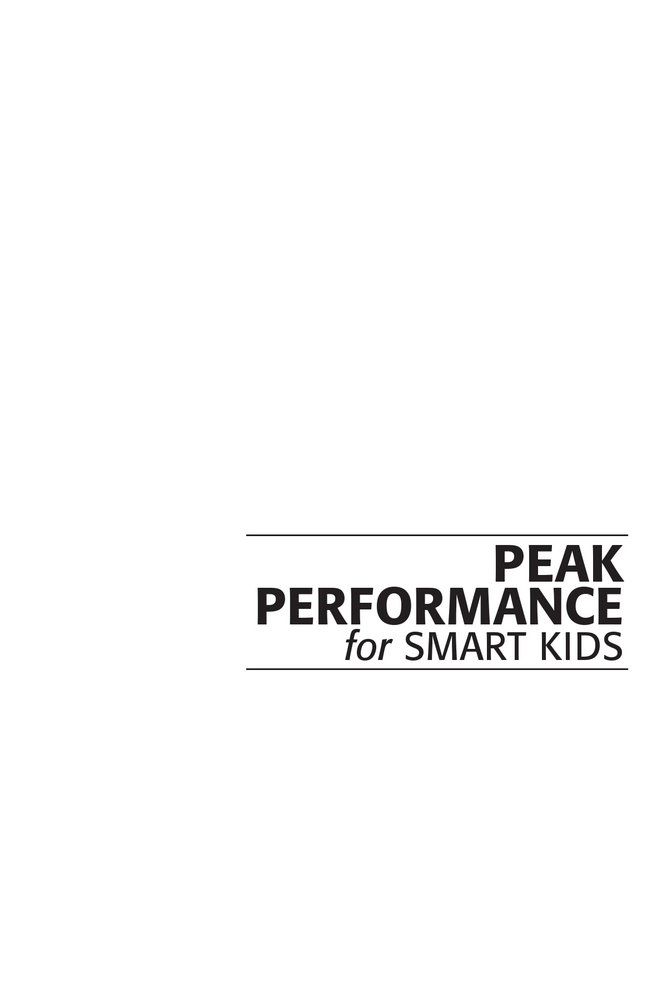
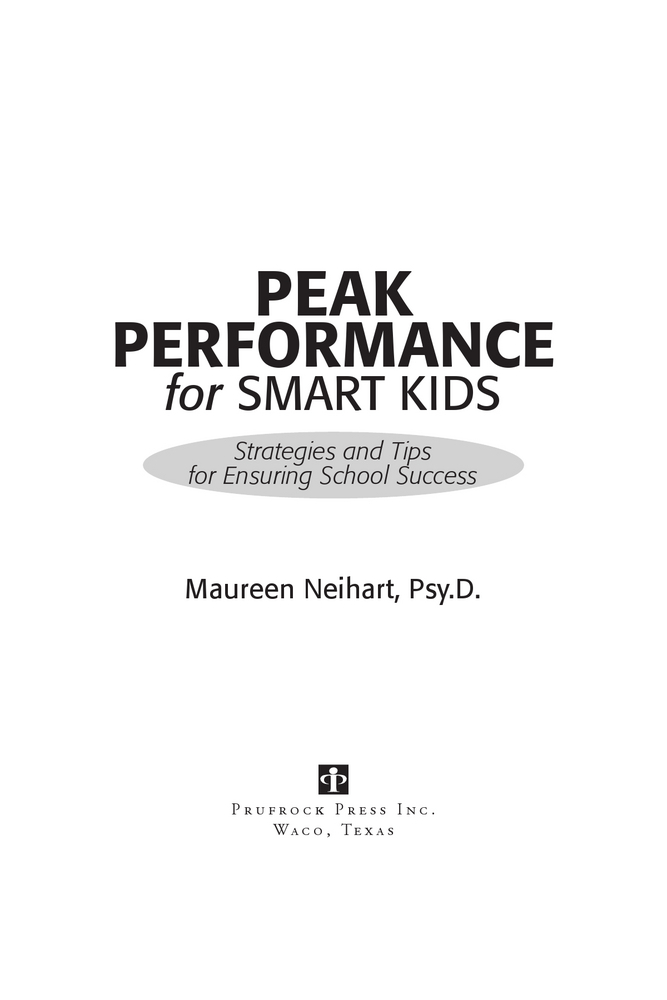
Copyright 2008 Prufrock Press Inc.
Edited by Lacy Compton
Cover and Layout Design by Marjorie Parker
ISBN-13: 978-1-61821-321-1
No part of this book may be reproduced, translated, stored in a retrieval system, or transmitted, in any form or by any means, electronic, mechanical, photocopying, microfilming, recording, or otherwise, without written permission from the publisher.
At the time of this books publication, all facts and figures cited are the most current available. All telephone numbers, addresses, and website URLs are accurate and active. All publications, organizations, Web sites, and other resources exist as described in the book, and all have been verified. The authors and Prufrock Press Inc. make no warranty or guarantee concerning the information and materials given out by organizations or content found at Web sites, and we are not responsible for any changes that occur after this books publication. If you find an error, please contact Prufrock Press Inc.
 | Prufrock Press Inc. P.O. Box 8813 Waco, TX 76714-8813 Phone: (800) 998-2208 Fax: (800) 240-0333 http://www.prufrock.com |
Foreword
AS I was browsing through the manuscript of this wonderful book by psychologist Maureen Neihart, my elder son Zhong had just returned from a mountain climbing trip to Mount Kinabalu. Zhong will begin his first year at university doing a double degree in law and economics, but for now, before his term begins, he is set on adventure. A family friend met my wife and I just a few days before Zhong returned and were shocked that we allowed him to travel alone to Kota Kinabalu and attempt the ascent. At nearly 4,100 meters, Mount Kinabalu is the highest mountain in Borneo, and all of Southeast Asia. Like all parents we too had our concerns but understood that he needed to venture out on his ownas Maureen describes in her book, out of the comfort zone to the edge of their competence. My younger son Chen was just released from his first 2 weeks of military service that very same evening while I was reading this book. He came back in his smart military uniform and was immediately off to the gym. He used to write his own goals50 push-ups, 30 bicep curls of 15-pound weights, and so forththat have transformed his physique, not to mention his confidence and esteem.
Maureens book caused me to reflect on the times when my sons were very frail kids struggling to achieve their various aspirations in their primary school and teenage days. Zhong was a national squash trainee when he was at Raffles Institution and recently, while still with the military service, he also represented his division in the Armed Forcesthey came out tops. I remember the many times he was anxious and at times frustrated when honing his squash skills as a teenager. Our culture celebrates talent and has little patience with those who try too hard. It does not appreciate that sport, like any academic subject, challenges those who attempt it with a steep learning curve, yet is ultimately rewarding and a source of validation for a young person. When Zhong was 15, we were so concerned about how he was coping with his studies (as his grades in school were alarming), that we had to write him a note lamenting our concerns. Two years ago he achieved straight distinctions in his A Level Examinations, including one in economics, a subject he pursued with an interest that took him beyond the boundaries of any syllabus.
My younger son Chen used to write some of the saddest entries in his diary in primary schoolhe was classified as unable to read in his first grade and placed with the learning support group. But, like all parents who spend enough time with our children, we knew our kids better than any diagnostic system, we knew they had abilities and that they could reach their peak performance some day. We just wanted to ensure that they be given opportunities to explore and fulfill their God-given talents. The school environment is not always so kind, with educators striving to hit the right note between keeping bright students engaged and helping slower students keep up. But, even with opportunities and a good support environment it is never easy out there. They fall down and need to get up and not give up. By the time Chen completed his secondary school years the boy who could not read had become valedictorian and winner of the N. Vaithinathan award for outstanding achievement in all areas; recognized for leadership achievement in the student council, with straight As in the Cambridge O Level Examinations; and a Gold Medal winner of the Sharma Book prize for language and literature. Maureen is rightmany times it is mental resilience and psychological prowess that our children need to develop and discover their potential. For parents, it may be a willingness to take risks, including the risk of faith.
There were many occasions I remember Zhong swinging imaginary forehands and backhands at home, visualizing hypothetical opponents and winning matches, if only in the arena of the mind. His team would watch and review movies like Remember the Titans when they were preparing for major tournamentsexactly along the similar vein of mental and emotional preparation that this book recommends. Managing stress, setting smart goals and visualizing success, and identifying positive emotions and getting into the mood with positive optimismthese were the things they truly learned and I cannot agree more with Maureen that the most important thing is that my children did what they loved to do and had the opportunities to reach and build small success experiences. Maureen captures in her book some of the things that upon reflection I really wished I had known earlier as a parent without having to undertake so many trial-and-error approaches!
Now speaking as an academic, psychologist, and researcher, I want to congratulate Maureen for her efforts in putting together a very well-researched work. We have too many books of this sort that are technical, dry, and uninspired. She has in many ways succeeded in crystallizing the best insights from the dense literature of psychology, coupled with practical wisdom for nurturing peak performance. She also has articulated these in a way that is highly accessible, readable, and engaging with many interesting case examples and excellent practical pointers.
I strongly recommend this book to parents, educators, and psychologists interested in helping the young and the next generation achieve their peak performance in school, extracurricular activities, and life.
Oon-Seng Tan, Ph.D.
Head of Psychological Studies, National Institute of Education, Singapore
President-Elect, Asia-Pacific Educational Research Association
What Do Coaches, Athletes, and Performing Artists Know That We Dont?
IN my 30 years of working with talented children and their families, I have met many capable children who struggled to realize their promise. The challenges they faced often were not due to their lack of motivation or to lack of support from their parents. The difficulties they had were common to every child who pursues a passion. They didnt have the mental skills to stay at the top of their game. They didnt know how to play the inner game of high achievement.
Next page
